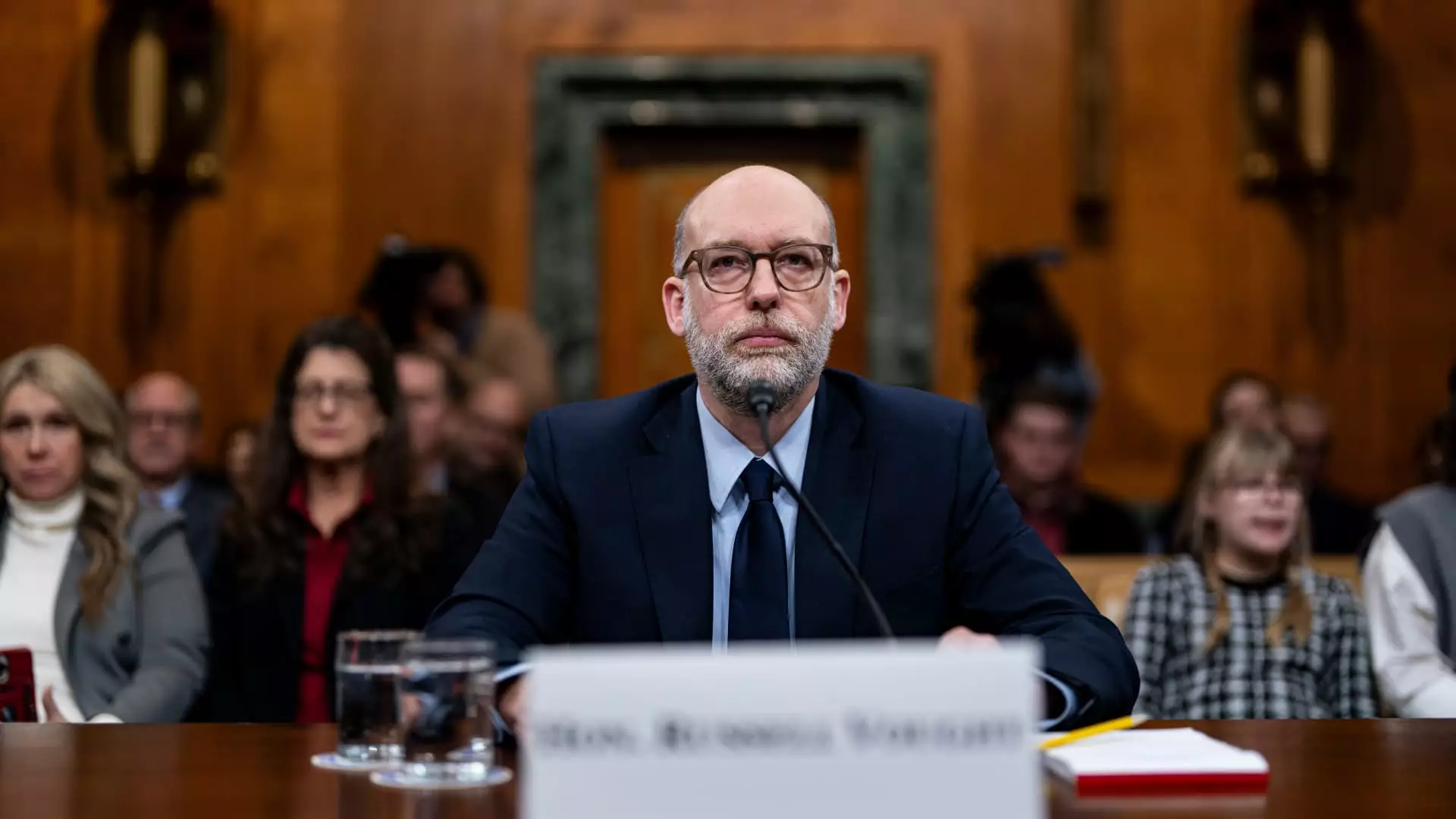The recent confirmation of Russell Vought as the budget director under President Trump’s administration has sparked a significant political debate among lawmakers. This confirmation, passed with a narrow 53-47 vote in the Republican-led Senate, encapsulates a struggle between ideology and governance. Vought, a staunch conservative, previously served as the head of the Office of Management and Budget during Trump’s first term, and his nomination raises critical questions about the future of federal funding and administrative accountability.
Vought’s nomination was marked by an intense backlash from Democratic senators who labeled him as a dangerous far-right ideologue. This criticism was not merely a political tactic; it stemmed from Vought’s vocal challenges to established norms regarding budgetary authority. During his confirmation hearings, he openly questioned the constitutionality of the 1974 Budget Control Act, which restricts the President from unilaterally impounding funds approved by Congress. This stance alarmed not only Democrats but also some Republicans, indicating a potential fracture in party lines regarding fiscal governance and executive power.
Furthermore, Democrats highlighted Vought’s connection to the right-wing Project 2025 initiative, criticizing how this ideology has influenced decisions across various government agencies, from USAID to the Justice Department. Senator Chuck Schumer articulated these concerns effectively, emphasizing the far-reaching consequences of Vought’s budgetary strategies and policies. Such statements underline a pervasive fear within the Democratic Party regarding what they perceive as an escalating trend toward authoritarianism in budgetary control.
Implications of Federal Fund Freezes
Shortly before Vought’s confirmation, a memo from the White House Budget Office announced a freeze on hundreds of billions of dollars in federal grants and loans. This abrupt move, while later retracted amid judicial intervention, highlighted the precarious nature of federal funding and the potential for political agendas to undermine vital services. Critics asserted that Vought’s actions and philosophy could pave the way for similar unilateral decisions, leaving essential government operations vulnerable to partisan politics.
The chilling effect of these budget freezes resonates deeply with programs that depend on stable funding for their continuation. It raises critical questions about how future budgetary policies under Vought’s leadership may prioritize political loyalty over public service, giving rise to fears that essential services could be compromised based on ideological agendas.
In contrast, Vought’s supporters within the Republican Party herald his experience and commitment to reducing government overspending. Senate Majority Leader John Thune emphasized the necessity of Vought’s approach to identifying and eliminating wasteful spending, viewing this nomination as a crucial step toward fiscal responsibility. This perspective showcases the ideological divide in Congress, where the push for austerity must be balanced against the potential harms of cutting essential services.
While Vought’s proponents focus on his qualifications and private sector experience, the broader implications of his budgetary philosophy cannot be overlooked. The Senate’s decision to confirm him not only represents a triumph for Trump’s conservative agenda but also signals challenges ahead for civil governance as budgetary debates intertwine with partisan conflicts.
Vought’s confirmation is as much a testament to Trump’s influence in shaping the executive branch as it is a reflection of broader ideological battles within American politics. As Vought takes on his new role, the administration’s budgetary strategies will be closely scrutinized—anxiously watched by both supporters and opponents alike. The intersection of fiscal policy and political ideology will undoubtedly continue to shape the narrative surrounding governance in the United States.


Leave a Reply